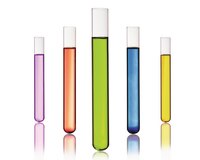822266 Sigma-AldrichChromium(VI) oxide
Chromium(VI) oxide for synthesis. CAS 1333-82-0, pH < - 1 (100 g/l, H₂O, 20 °C).
More>> Chromium(VI) oxide for synthesis. CAS 1333-82-0, pH < - 1 (100 g/l, H₂O, 20 °C). Less<<Synonyms: Chromic anhydride, Chromium trioxide
Recommended Products
Overview
| Replacement Information |
|---|
Key Spec Table
| CAS # | EC Number | Hill Formula | Molar Mass |
|---|---|---|---|
| 1333-82-0 | 215-607-8 | CrO₃ | 99.99 g/mol |
Products
| Catalogue Number | Packaging | Qty/Pack | |
|---|---|---|---|
| 8222660100 | Glass bottle | 100 g | |
| 8222661000 | Glass bottle | 1 kg | |
| 8222662500 | Glass bottle | 2.5 kg |
| Description | |
|---|---|
| Catalogue Number | 822266 |
| Synonyms | Chromic anhydride, Chromium trioxide |
| References |
|---|
| Product Information | |
|---|---|
| CAS number | 1333-82-0 |
| EC index number | 024-001-00-0 |
| EC number | 215-607-8 |
| Hill Formula | CrO₃ |
| Molar Mass | 99.99 g/mol |
| HS Code | 2819 10 00 |
| Quality Level | MQ200 |
| Applications | |
|---|---|
| Application | Chromium(VI) oxide for synthesis. CAS 1333-82-0, pH < - 1 (100 g/l, H₂O, 20 °C). |
| Biological Information |
|---|
| Physicochemical Information | |
|---|---|
| Density | 2.7 g/cm3 (20 °C) |
| Melting Point | 196 °C |
| pH value | <1 (100 g/l, H₂O, 20 °C) |
| Bulk density | 900 kg/m3 |
| Dimensions |
|---|
| Materials Information |
|---|
| Toxicological Information |
|---|
| Safety Information | |
|---|---|
| Categories of danger | carcinogenic, mutagenic, oxidizing, very toxic, corrosive, sensitizing, dangerous for the environment, toxic for reproduction |
| Product Usage Statements |
|---|
| Storage and Shipping Information | |
|---|---|
| Storage | Store below +30°C. |
| Packaging Information |
|---|
| Supplemental Information |
|---|
| Specifications | |
|---|---|
| Assay (iodometric) | ≥ 99.0 % |
| Identity (ICP-OES) | passes test |
| Global Trade Item Number | |
|---|---|
| Catalogue Number | GTIN |
| 8222660100 | 04022536486949 |
| 8222661000 | 04022536486956 |
| 8222662500 | 04022536486963 |
Documentation
Chromium(VI) oxide SDS
| Title |
|---|
Chromium(VI) oxide Certificates of Analysis
| Product Number | Packaging | Specification | Lot Number |
|---|---|---|---|
| 8222660100 | Glass bottle | PDF Specification Document | |
| 8222661000 | Glass bottle | PDF Specification Document | |
| 8222662500 | Glass bottle | PDF Specification Document |







